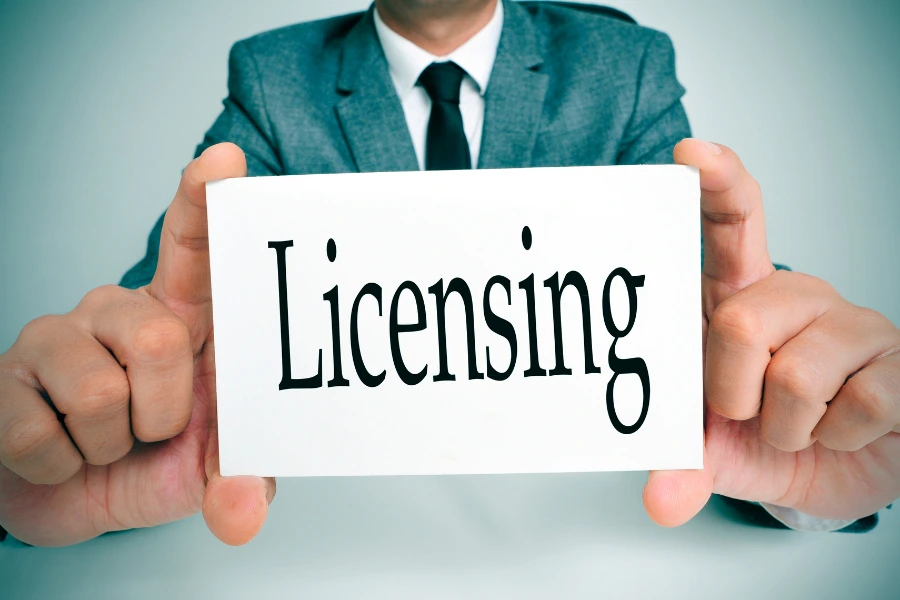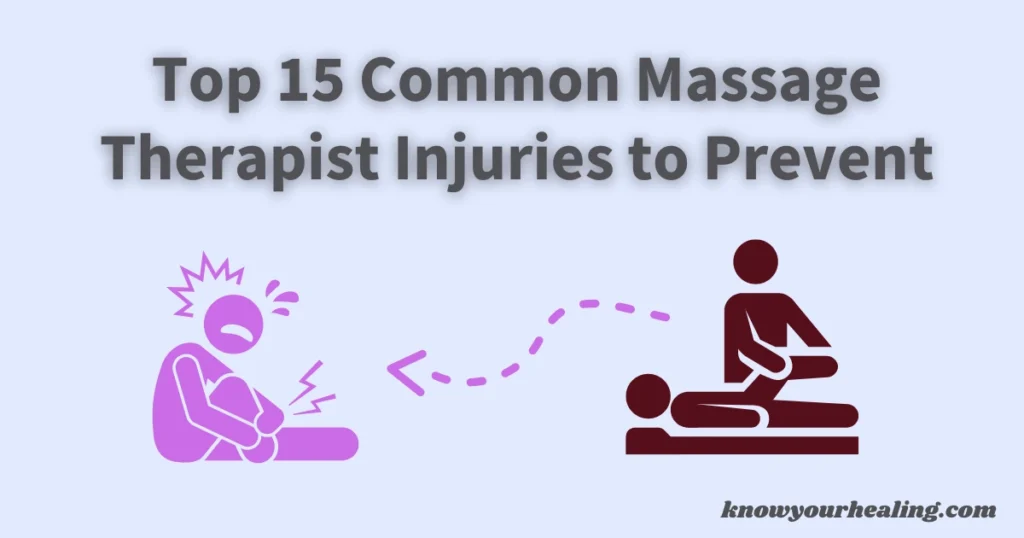Can you be a massage therapist without a license? That may cause serious consequences.
Practicing massage therapy without the appropriate licensing is not only illegal but can also lead to fines and imprisonment in many states.
Each state has its regulations, and understanding these rules is crucial for anyone considering a career in this field.
Massage therapy requires both licensing and certification to ensure practitioners meet specific standards.
Licensing protects clients and maintains quality and safety within the industry.
For example, a massage therapist who practices without a license in Florida and New York could face significant penalties.
Despite the attractiveness of starting a practice quickly, aspiring massage therapists must follow the legal requirements set by their state.
By meeting state requirements, therapists avoid legal issues and gain acceptance and credibility in the community.
The process may involve costs and education, but the benefits of operating legally far outweigh the risks of bypassing these steps.
For those interested, becoming a licensed massage therapist involves navigating legal conditions, ultimately leading to a fulfilling and legitimate career path.
Understanding Massage Therapy Licensing

Becoming a massage therapist involves understanding various licensing and certification requirements.
Specific laws vary by state, but meeting educational standards and passing exams are crucial.
Navigating this process ensures both the therapist’s and client’s safety.
Ensuring compliance with these regulations is vital for anyone pursuing a career in this field.
Importance of Licensing and Certification
Licensing is crucial because it helps protect public safety and ensures a high standard of care.
A licensed massage therapist has undergone extensive training and adheres to the ethical and professional standards set by governing bodies.
This is designed to safeguard clients against unqualified practitioners.
Certification from the Federation of State Massage Therapy Boards validates skills and knowledge.
Board certification demonstrates a commitment to professionalism and ongoing education, reinforcing trust among clients and peers.
Overview of Licensing Requirements
Licensing requirements for massage therapists vary by state.
Typically, they include a minimum number of training hours from an accredited massage therapy school.
Some states may require a massage therapist license earned after completing a program and passing state exams.
Most states require candidates to complete a hands-on clinical experience and pass an examination.
For instance, the California Massage Therapy Council requires proof of education and passing the Mblex exam.
States may also require a criminal background check or other specific preconditions.
Examining State Regulations
State regulations in the United States can differ significantly.
Some states, like Florida, have strict guidelines and penalties for practicing without a license.
In Arizona, therapists need an Arizona massage therapy license, reflecting the importance of following state-specific laws.
States such as California and New York require a thorough understanding of local laws and regulations, such as those outlined by the state’s board.
Practicing massage therapy without adhering to these regulations can lead to disciplinary action, including fines or legal action.
Understanding these different requirements is vital to establishing a successful massage therapy career.
Pathways to Becoming a Licensed Massage Therapist
Becoming a licensed massage therapist involves completing specific education, passing exams, and meeting other professional requirements.
These steps ensure therapists are well-prepared to provide safe and effective massage services.
Education and Training Requirements
Licensed massage therapists must complete a massage therapy program at an accredited school.
Most massage schools require at least a high school diploma for entry. Programs often cover massage techniques, anatomy, and ethics.
Students typically need to complete a certain number of hours of classroom instruction and clinical experience.
Some states, like Arizona, have specific licensing requirements governed by the Arizona State Board of Massage Therapy.
Meeting these educational requirements helps prepare students for a career in the field.
MBLEx and Other Examinations
Passing the Massage & Bodywork Licensing Examination (MBLEx) is crucial for aspiring therapists.
Administered by the Federation of State Massage Therapy Boards, this exam assesses knowledge in therapeutic massage, body systems, and client care.
Some states also require additional testing for state-specific laws and practices.
Those trained at an out-of-state school might face different examination requirements.
The California Massage Therapy Council certifies therapists in some areas, ensuring they meet California-specific standards.
Achieving a massage therapist license through exams ensures readiness for professional practice.
Background Checks and Professional Liability Insurance
Before obtaining a license, many states mandate a criminal background check to maintain public safety.
This ensures that those entering the profession have a clear background.
In addition to background checks, securing professional liability insurance is often required.
This insurance protects massage therapists from potential legal and financial claims.
Insurance also demonstrates professionalism and commitment to the practice of massage therapy.
By completing background checks and obtaining insurance, therapists show their dedication to public protection and adherence to state laws.
State-Specific Licensing Information

Massage therapists must adhere to specific licensing requirements that vary by state.
Understanding these requirements is crucial for those aiming to become a licensed massage therapist, as these guidelines ensure the practice of massage therapy maintains public safety and health standards.
Case Study: California Massage Therapy Council
In California, the California Massage Therapy Council oversees the licensing of massage therapists.
They offer two certifications: Certified Massage Therapist and Certified Massage Practitioner.
Each requires different hours of training from a massage therapy program at an approved school.
The state emphasizes professional liability insurance and provides an identity protection plan for therapists.
By meeting these criteria, practitioners gain legal recognition of massage therapy in a state with rigorous regulations.
Kansas and Oklahoma have distinct requirements for massage therapists.
In Kansas, clinical experience is an important focus, and applicants are expected to complete a certain number of hours of training.
Meanwhile, Oklahoma emphasizes examination requirements as part of its licensing process.
In both states, business licenses for those starting a massage establishment can involve additional local-level regulations.
Both states highlight the importance of a thorough, completed application process to practice legally.
Comparisons with Minnesota and Vermont
Minnesota and Vermont present different approaches to massage therapy licensing.
Minnesota does not mandate a statewide license but allows local governments to regulate it, creating variability in enforcement.
This can impact new massage therapists seeking to practice without a uniform state guideline.
Vermont, on the other hand, has specific state certification requirements.
It focuses on educational requirements and a criminal background check for aspiring therapists.
Both states underscore the focus on public protection and the professional regulation framework to ensure high standards in therapeutic massage practices.
National and Professional Organization Standards
Navigating the world of massage therapy involves understanding national standards and professional guidelines.
Key organizations provide structure and support for therapists pursuing a safe and ethical practice. The American Massage Therapy Association and Board Certification through NCBTMB play significant roles.
American Massage Therapy Association (AMTA)
The American Massage Therapy Association (AMTA) sets high standards for massage professionals.
This organization offers resources and support for therapists, emphasizing education and ethical practice.
With a focus on professional development, AMTA requires a massage therapy program from an accredited school.
They advocate for public health by promoting safe and effective massage techniques.
AMTA also strongly recommends obtaining a massage therapist license to comply with state laws and support public protection.
Licensed massage therapists are better equipped to manage a successful massage business within their scope of practice.
Board Certification through NCBTMB
Board Certification through the National Certification Board for Therapeutic Massage and Bodywork (NCBTMB) is considered a high mark of professionalism in the industry.
New massage therapists who pursue this certification are committed to rigorous standards.
Candidates must pass a bodywork licensing examination and complete specific requirements, including classroom and clinical experience hours.
This certification can enhance a massage therapy career by demonstrating expertise and dedication to ongoing education.
It represents a commitment to maintaining a high standard of care in every massage establishment.
Consequences of Practicing Without a License
Practicing massage therapy without a license can seriously affect individuals and the profession. This can include legal action, disciplinary measures, and adverse effects on the perception of the massage industry.
Licenses ensure public health and uphold standards within the field.
Legal and Ethical Implications
Practicing massage therapy without a license can result in severe legal penalties.
In some states, it is considered a criminal offense that may lead to fines or even imprisonment.
For example, practicing without a license in New York is a felony.
Massage therapy without proper certification also breaches ethical standards, undermining professional integrity and public trust.
States have specific requirements to ensure practitioners meet a high standard.
Organizations such as the Federation of State Massage Therapy Boards guide these regulations, emphasizing the necessity of a license to operate legally.
Licensing requirements protect the wellness benefits of massage and maintain a safe environment for clients.
Disciplinary Actions
Disciplinary actions for working as a massage therapist without the necessary credentials are significant.
These actions include fines, revocation of a business license, and prohibition from operating a massage establishment.
Repeated offenses lead to harsher penalties, affecting a person’s opportunity to work legally within the industry.
Licensed massage therapists are expected to adhere to strict rules.
The Arizona State Board of Massage Therapy enforces disciplinary measures to maintain professional standards.
New massage therapists should be aware of local governments’ enforcement of licensing laws to avoid infractions.
Impact on the Massage Profession
Unlicensed practice tarnishes the reputation of massage professionals.
It may cause public doubt about the benefits and safety of therapeutic massage.
This perception can harm the industry’s image, deter potential clients, and affect licensed professionals.
The American Massage Therapy Association works to enhance the legal recognition of massage therapy, advocating for proper certification.
Ensuring professionals meet educational requirements, including hours of training at an accredited school, is crucial for the profession’s future.
Public protection and maintaining a trusted practice environment remain paramount.
Insurance and Business Considerations for Massage Therapists

Massage therapists must understand the importance of insurance and legal compliance to protect their practices. Navigating insurance requirements and legal business operations is crucial for a successful massage therapy career.
Insurance Requirements for Therapists
Licensed massage therapists must carry professional liability insurance to protect themselves from potential legal action. This insurance shields massage professionals against claims related to their practice of massage therapy.
Professional liability insurance is essential, covering incidents that may occur during massage sessions. It typically includes identity protection plans that guard against unauthorized use of personal information.
Beyond liability insurance, therapists often need general liability coverage to protect against accidents, such as a client’s injury during a visit. Some massage schools highlight these needs during their training programs.
Working with organizations like the American Massage Therapy Association can help therapists select the right insurance for their practice. Different states may have specific requirements depending on local laws and state regulations.
Running a Compliant Massage Business
Operating a massage business requires compliance with legal and regulatory demands.
Therapists must adhere to state laws, which often include holding a valid massage license.
For instance, the Arizona State Board of Massage Therapy sets specific educational requirements, including hours of training, examination requirements, and sometimes a criminal background check.
New massage therapists should verify if their home state has additional business license needs.
In some places, compliance with local regulations may involve submitting a completed application detailing their massage services and obtaining a board certification from recognized institutions like the Federation of State Massage Therapy Boards.
Opening a massage establishment means understanding the local rules regarding zoning and health standards. This ensures public safety and maintains massage’s wellness benefits.
Familiarity with public health guidelines is key in avoiding disciplinary action that could impact the long-term success of their business operations.
Advancing Your Massage Therapy Career
Licensed massage therapists can enhance their careers through continuous learning and certifications. These steps can open doors to specialized roles and increase earning potential.
Continuing Education
Continuing education is crucial for a successful massage therapy career.
Most states, including local governments, require therapists to complete annual hours of training to renew their massage licenses. This ensures that therapists maintain high standards of practice, enhancing public safety and health.
Courses may cover various topics, such as advanced massage techniques, therapeutic massage, and new wellness benefits.
Accredited schools and organizations, like the American Massage Therapy Association, offer numerous options.
Professionals who pursue these courses improve their skills and stay informed on state laws and best practices in public protection.
Specializations and Advanced Certifications
Obtaining specializations and advanced certifications can significantly benefit a massage therapist’s career.
Focusing on areas like sports massage, prenatal massage, or medical massage allows therapists to cater to specific client needs and work in diverse settings, such as massage establishments or healthcare facilities.
Certification from recognized bodies, such as the National Certification Board, can boost a therapist’s credibility.
Board certification often involves passing a certification exam, meeting educational requirements, and undergoing clinical experience.
This rigorous form of professional development is essential for therapists seeking to broaden their practice, enhance their services, and increase job opportunities.
Additional State Perspectives
Various states regulate massage therapy differently, impacting how massage therapists practice. Understanding specific state requirements is crucial for anyone pursuing a career in this field.
Alaska and Montana’s Take on Massage Licensing
In Alaska, massage therapy careers require a massage therapist license, which involves completing a massage therapy program and passing the Federation of State Massage Therapy Boards exam.
Applicants must also pass a criminal background check to ensure public safety. These strict requirements emphasize the state’s commitment to regulating massage therapy and protecting consumers from unqualified practitioners.
Montana also mandates a license for massage therapists, with similar prerequisites, including graduation from an accredited school and a certain number of hours of training.
The state’s board monitors compliance, ensuring all professionals meet its standards. Monitoring extends to massage establishments, too, guaranteeing professional service levels across the state.
Regulatory Scenes in New Hampshire and Rhode Island
New Hampshire requires an application process that includes board certification from a recognized national certification board.
Applicants must demonstrate competency through completed education at a reputable institution. This approach emphasizes ensuring therapists possess the necessary skills and abide by state regulations.
Rhode Island sets specific licensing requirements, such as a minimum of 500 hours of classroom and clinical experience.
The state’s emphasis on practical training reflects its focus on skill proficiency.
Local governments in Rhode Island may impose additional rules, underscoring the importance of adhering to state and local regulations. Rhode Island’s model shows a structured path toward obtaining a professional license and contributing positively to public health.
Final Thoughts
Can you be a massage therapist without a license? This question involves considering state regulations and legal requirements.
Some states do not require specific licensure. However, others, like Texas, impose strict rules against practicing without a license.
In certain areas, operating without proper credentials might lead to severe penalties. For instance, practicing without a license in Florida may result in fines of up to one year in jail.
The risks of practicing massage therapy without a valid license go beyond legal consequences. Unlicensed practitioners could face reputational harm and may struggle with securing liability insurance.
Being licensed often assures clients of the therapist’s competence and professionalism.
Key Points to Consider:
- Legal requirements vary by state.
- Potential fines range from $25 to $15,000.
- Imprisonment is possible in some states.
- Licenses help in building client trust.
Knowing these facts can guide aspiring therapists in deciding their path. They should weigh the pros and cons of becoming licensed based on their goals and state regulations.
Trustworthiness and legal compliance are key in the massage therapy profession.
Understanding these legal frameworks is key to determining whether you can be a massage therapist without a license. Professionals should explore online resources like knowyourhealing.com for further guidance on navigating this career path.




